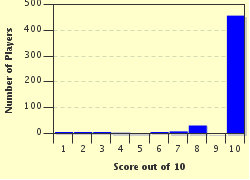
USA City Nicknames Trivia Quiz
America, with its amazing diversity of geography and culture, has a number of major cities with colorful, interesting nicknames. Take a tour of the country and check them out.
A matching quiz
by Nealzineatser.
Estimated time: 3 mins.
